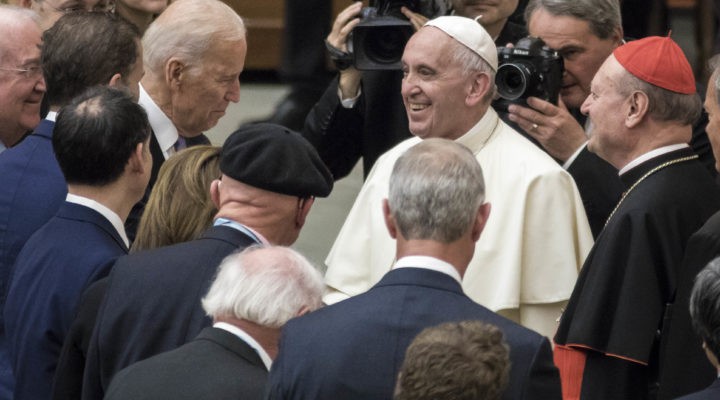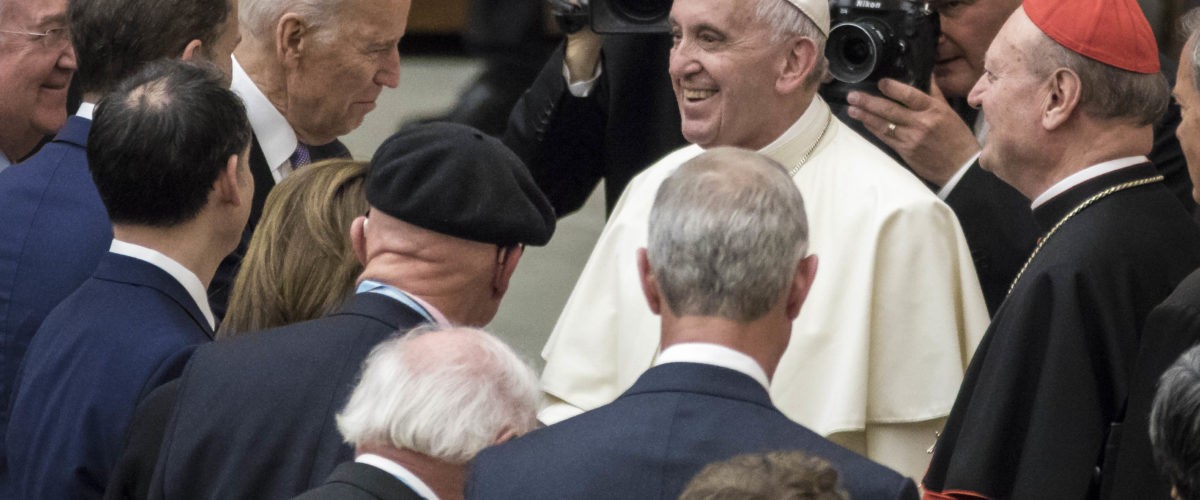U.S. Protestants are not alone in believing modern-day politics are rending their fellowships in two. American Catholics are fighting about the same things, only this time with one of their own sitting in the White House.
Joe Biden’s election as president has heightened the rancorous divisions within Catholicism about how much weight should be given to abortion as a litmus test. But it’s not just him in the crosshairs. Speaker of the House Nancy Pelosi is a Catholic, as are both New Jersey Republican Rep. Christopher H. Smith and New York Democratic Rep. Alexandria Ocasio-Cortez — polar opposites politically.
In Congress, 24 members of the Senate are Catholic, as are 134 members of the House — the largest single religious group in the House. The one-fourth of the Senate who are Catholic is higher than the 20% of the American population at large that identifies as Catholic.
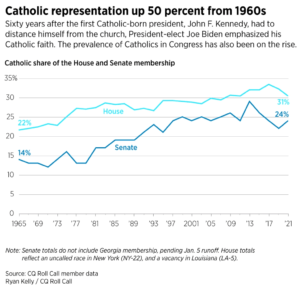 Catholics have been growing in influence in Congress since the election of John F. Kennedy as president in 1960. That trend has been accelerated by the election of more Hispanic legislators, who tend to skew toward Catholicism culturally.
Catholics have been growing in influence in Congress since the election of John F. Kennedy as president in 1960. That trend has been accelerated by the election of more Hispanic legislators, who tend to skew toward Catholicism culturally.
Yet in the midst of this, Senate Minority Leader Mitch McConnell, House Minority Leader Kevin McCarthy and Vice President Kamala Harris all are Baptists — although from opposite sides of the Baptist theological and social justice tradition.
While Harris may be criticized by some fellow Baptists for her views on abortion and other contested social issues, Baptist congregational autonomy allows no mechanism to censure her. Two Texas Baptist pastors made national headlines in January by calling Harris a “Jezebel,” yet their words carried no real threat.
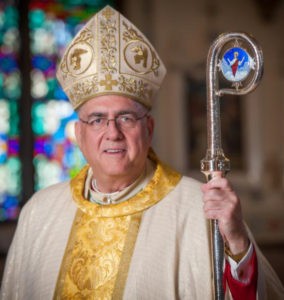
Archbishop Joseph Naumann
Biden, who is by all accounts a devout Catholic, faces a different kind of institutional challenge. The Associated Press reports that when U.S. Catholic bishops hold their next national meeting in June, “they’ll be deciding whether to send a tougher-than-ever message to President Joe Biden and other Catholic politicians: Don’t receive Communion if you persist in public advocacy of abortion rights.”
“Because President Biden is Catholic, it presents a unique problem for us,” Archbishop Joseph Naumann of Kansas City, Kan., told AP. Naumann chairs the bishops’ Committee on Pro-Life Activities. “How can he say he’s a devout Catholic and he’s doing these things that are contrary to the church’s teaching?”
The president is not in actual danger of being denied Communion in the Catholic congregations he most often attends, however, because the U.S. bishops’ statement would not carry the weight of law within the church. Individual bishops are allowed latitude on such issues.
AP reported that Bishop W. Francis Malooly of Wilmington, Del., and Cardinal Wilton Gregory of Washington, D.C., “have made clear that he may receive Communion at churches they oversee.”
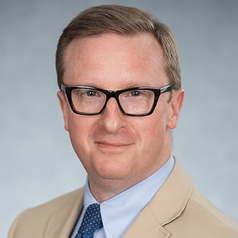
Steven Millies
Writing for The Conversation, Steven Millies, associate professor of public theology and director of the Bernardin Center at Catholic Theological Union, said: “As a scholar who studies Catholicism in political life, I argue that the proposed pastoral statement reflects existing divisions inside the Catholic Church that have been heightened by the election of Biden as president. Moreover, it will serve only to deepen the divide.”
Millies was a member of the Biden-Harris 2020 campaign’s Catholic Advisory Council.
“Joe Biden is a devoted Catholic, attending Mass weekly and carrying a rosary everywhere he goes. He has talked many times about how important his faith is to him,” Millies wrote. “But his policy position on abortion jars with more conservative elements in the Catholic Church.”
This is nothing new, the Catholic scholar suggested, and likely is a heightened issue right now because of “concerns among bishops over their waning influence.”
Meanwhile, on the other side of the aisle, Republican Rep. Liz Cheney cited Pope John Paul II and appealed to “faith and freedom” in a defiant speech the night before her ouster from House Republican leadership for the sin of telling the truth about former President Donald Trump’s lies regarding the 2020 election.
RNS reported that in a sign of the more common influence of Catholicism in American politics, Cheney, a Methodist, recounted a moment in 2004 when she said Pope John Paul II took the hand of her father, then-Vice President Dick Cheney, and declared “God bless America.”
No Catholic bishops have threatened to deny Communion to Republican members of Congress who have enabled and spread Trump’s well-documented lies about the election, even though truth-telling is one of the 10 Commandments along with a prohibition on murder.
“I read nothing in the words of New Testament … that you can lie so long as it’s … against abortion or against the left.”
Before the vote was taken to oust her from party leadership, Cheney led the group in prayer, RNS reported: “Help us to speak the truth and remember the words of John 8:32 — ‘Ye shall know the truth and the truth shall set you free.’ May our world see the power of faith.”
Republican Rep. Adam Kinzinger “later questioned whether Christians in his party who are chastising Cheney — particularly those who are not condemning Trump’s discredited claims about the election — were living up to their religious ideals,” RNS reported, quoting him as saying: “It’s amazing how many of my colleagues claim to likewise be Christians, but somehow are OK with … accepting and supporting these lies. When I went to Sunday school, it was always about telling the truth. I read nothing in the words of [the] New Testament … that you can lie so long as it’s … against abortion or against the left.”
Related articles:
SBC pastor calls Vice President Kamala Harris a ‘Jezebel’ two days after inauguration
2020 vote shows religious identity held steady with slight change among Catholics and Mormons
This year’s tug of war over the Catholic vote and why it matters
America’s second Catholic president faces a vastly different landscape than the first

